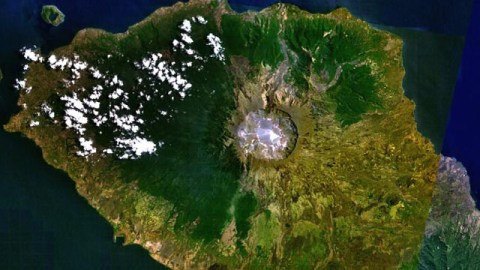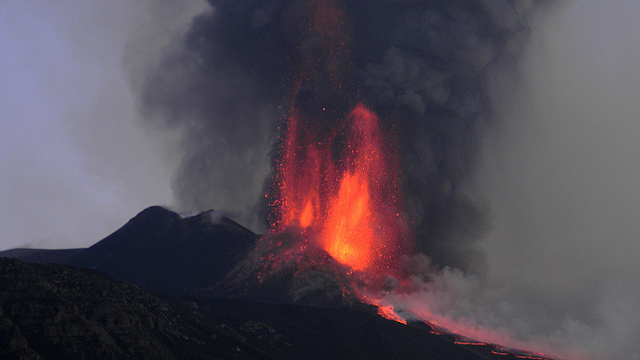Signs of unrest at the famous Tambora Caldera in Indonesia

I originally had this information in today’s first post, but it likely deserves it’s own post, so here it is.
Eruptions reader Martin pointed out an new report (Indonesian) from the volcanological survey in Indonesia, the PVBMG, that raises the alert level at one of Indonesia’s most famous volcanoes, Tambora. Now, many of you volcano enthusiastics would remember Tambora for 1815, when it produces one of the largest eruptions in the past few thousand years. This eruption threw enough material and aerosols into the atmosphere to cause significant global cooling, producing the “Year without a Summer” documented across the globe. What most people don’t know is that after the 1815 eruption, Tambora has erupted at least 3 known times, all in the scale of VEI 0-2 (rather than the VEI 7 of 1815).
Why do I mention this? Well, with any news of increased seismicity and steam plumes at a volcano like Tambora, you can be sure the fear/panic-mongers will come out in full force. The PVBMG reports says that since April 2011, the volcano has seen intermittent swarms of earthquakes and now at the end of August, there seems to be an increase in these shallow, volcanic earthquakes along with the presence of tremor. Combine that in observations of steam plumes rising tens of meters over the edge of the caldera rim, then you might have the signs of impending activity – thus the elevation of the alert status from Level I to II. Now, what kind of activity might we expect? Most likely we would expect something small, akin to the VEI 0-2 eruptions in 1819, 1880 and 1967, which were mainly lava flows and domes confined to the caldera floor, and most definitely not another VEI 7 event like the 1815 eruption.
So, an eruption at Tambora would definitely get a lot of people’s attention, but don’t expect it to bring about a summerless 2012.
Top left: An undated satellite image of the Tambora caldera.





